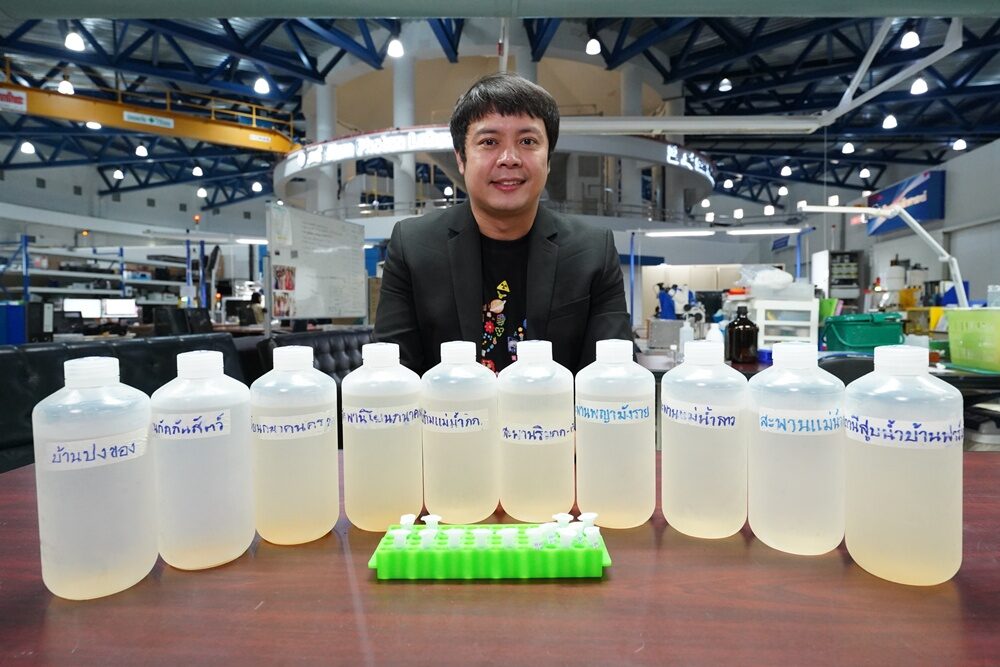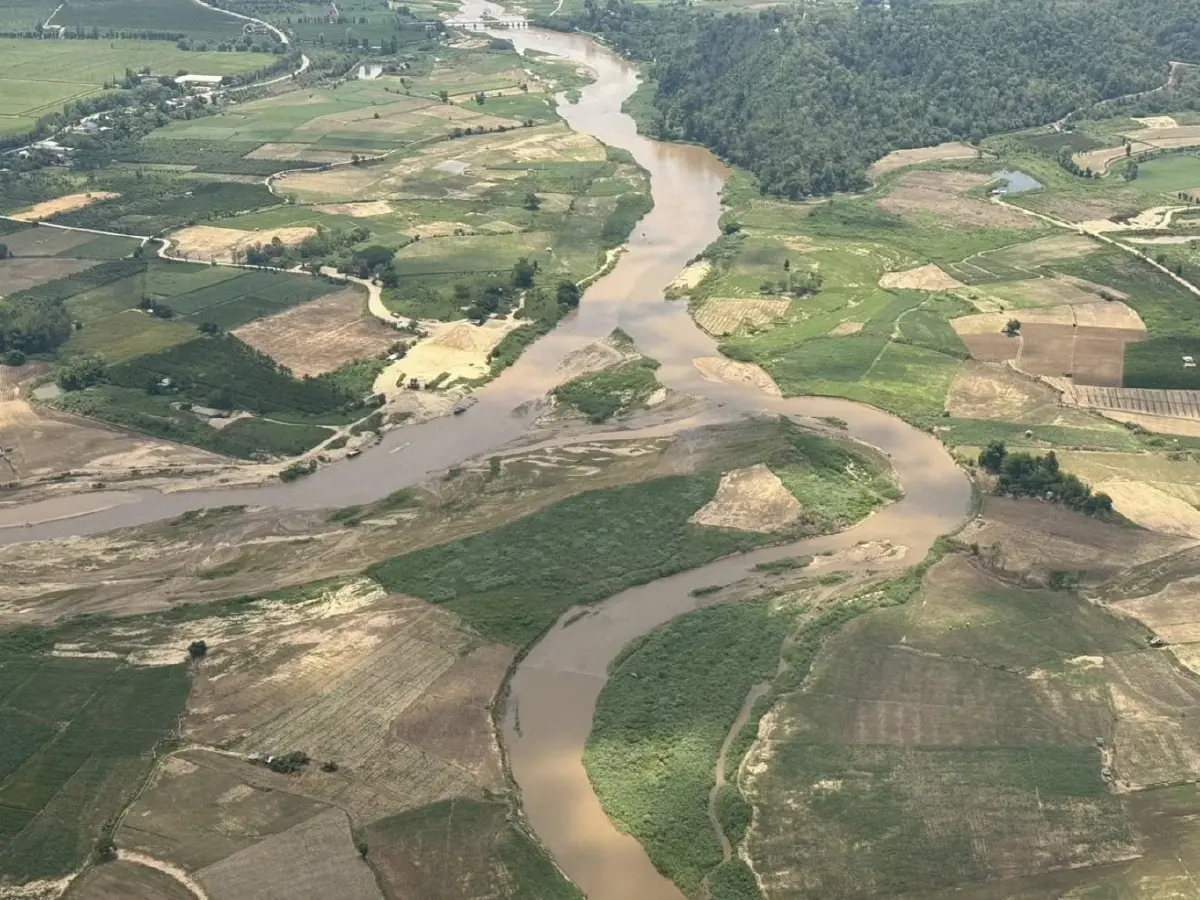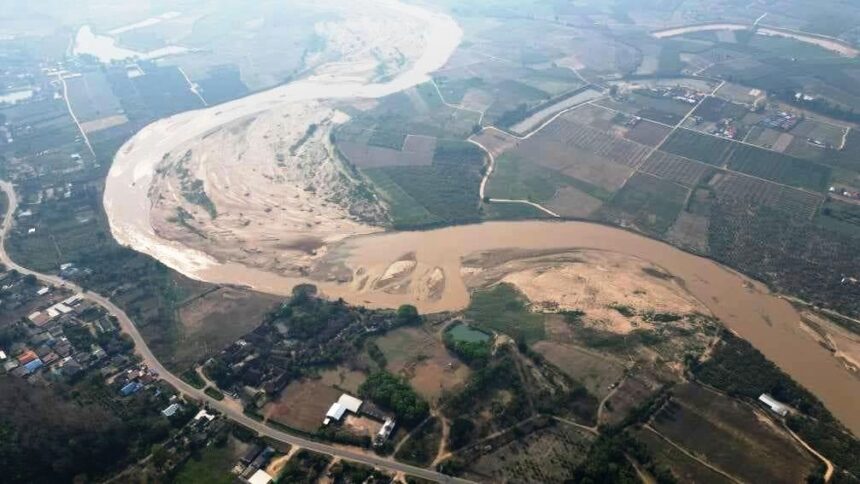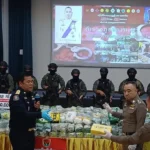CHIANG RAI – Civil groups in Chiang Rai organized an event marking one year since the floods and landslides. They remain worried that the aftermath will hurt rice farming over vast areas. They want the government to take the lead and gather regional countries for discussions.
On Wednesday, Dr Suebsakul Kitnukun from Mae Fah Luang University, a member of the People’s Network to Protect the Kok, Sai, Ruak, and Mekong Rivers, revealed that on 11 September 2025, local groups will hold an event to mark a year since natural disasters hit Chiang Rai.
Activities include panels on flooding, state warning systems, and river contamination. Crucially, they’ll gather public input to share recommendations with the government under Prime Minister Anutin Charnvirakul.
Dr Suebsakul advised the new government to focus on eight actions:
- Act quickly to shut down mines in Myanmar that are major pollution sources.
- Ban imports of minerals from Myanmar unless clear proof shows they do not come from polluting mines.
- Set up a national task force on river pollution from mining in Myanmar, including officials, academics, and the public.
- Create a plan to monitor the agricultural supply chain in the Kok, Sai, Ruak, and Mekong basins. This should focus on testing 100,000 rai of wet-season rice before the October harvest.
- Find new water sources for 55,000 tap water users in Muang, Wiang Chai, Mae Sai, Chiang Saen, and Chiang Khong.
- Set up heavy metal monitoring centres in Chiang Mai and Chiang Rai.
- Give compensation to groups hit by river contamination, such as river restaurant operators and local fishers who lost income.
- Take the lead in talks to solve cross-border pollution with Myanmar and China.
Phattharaphong Leelapat, an MP for Chiang Mai from the People’s Party and chairman of the subcommittee reviewing cross-border water pollution in Parliament, said the new government needs to act fast at the source—mining in Shan State.
The previous government only held one formal talk with Myanmar when Deputy Prime Minister Prasert Chanruangthong visited Naypyidaw. The outcome brought little progress apart from setting up a joint committee, which did not reassure locals that the problem would be addressed properly.

Phattharaphong said it is possible to contain contamination in the Kok, Sai, Ruak, and Mekong, but the last government made little real effort. Appointing the ONWR (Office of National Water Resources) as the lead body was not effective because Myanmar and China are not members of the MRC (Mekong River Commission).
Efforts should move to the Lancang-Mekong Cooperation (LMC), but pollution was never covered under this pact. The better solution is to use the LMEC (Lancang-Mekong Environmental Cooperation Center), which includes China and Myanmar, and act through the Ministry of Natural Resources and Environment.
He added that the former minister paid little attention to environmental matters and the government took the wrong approach. The path should be changed since LMEC includes all key countries. Talks with Laos are also needed to make sure impacts are managed for people along the Mekong in every country.
Phattharaphong called for urgent help for wet-season rice farmers affected by heavy metal pollution. No clear mapping exists to show where water from the Kok, Sai, Ruak, and Mekong is used, and no preparation has been made for supply if these rivers are unsafe.
In recent subcommittee meetings, agencies like the Department of Land Development and the Department of Agriculture confirmed that problem areas cannot pass GAP (Good Agricultural Practices) or Thai Organic standards for rice, which is a major concern.

He pointed out that rice farmers in affected areas now lack proper certification. Even if future rice tests find no contamination, farmers still risk low prices due to lost trust. The government must widen tests for contaminants before the coming harvest to restore confidence. Where contamination is found, compensation packages should be ready.
Phattharaphong said the problem is not limited to rice. In previous years, animal feed maize grown near the Kok was found with lead above safe levels. The government must keep monitoring farm zones and have a backup plan in case harmful metals are found again.
Farmers should not shoulder the cost alone, especially since they have not caused the problem and do not have clean alternative water sources.
Asked about the Environment Ministry plan to build four sediment dams with a budget of 173 million baht in the Kok, Phattharaphong said he doubts the value. Concrete structures like these are likely permanent and should be studied more for environmental impact, including a full EIA. Even so, finding safe sites to bury or treat toxic sediment will pose the toughest challenge.
He noted that building a two-metre-high dam on the Kok makes little sense in the rainy season when water surges above four metres. Sediment will flow straight over, and the project will become an obstruction, especially as the public has not had a chance to give opinions.
When asked about the spread of contamination into the Mekong and if regional action is needed, Phattharaphong said there must be clear international steps. He believes Thailand should take the main host role, since other countries benefit from the current situation.
Myanmar and China are unlikely to act since they face less impact. Thailand, as the country most affected, should lead and drive solutions among regional neighbours.














